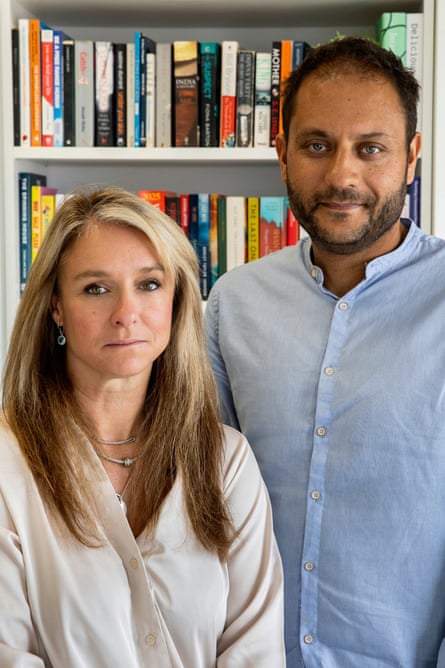An AI fiction translation service aimed at both traditional publishers and self-published authors has been launched in the UK. GlobeScribe.ai is currently charging $100 per book, per language for use of its translation services.
“There will always be a place for expert human translation, especially for highly literary or complex texts,” said the founders Fred Freeman and Betsy Reavley, who previously founded Bloodhound Books, which specialises in crime and thrillers. “But GlobeScribe.ai opens the door to new opportunities, making translation a viable option for a much broader range of fiction.”
GlobeScribe conducted “extensive blind testing” of its tool. Native speakers reviewed GlobeScribe translations alongside human-translated versions of texts without being told which method had been used. “The feedback consistently showed that readers could not reliably distinguish between them,” according to a company statement. “In some cases, reviewers even felt the AI-assisted versions were closer in tone and fidelity to the original English manuscript.”
However, prominent translators along with a translators’ organisation have expressed concern over the initiative.
GlobeScribe “may claim to unlock global access for fiction, but their approach sidelines the very people who make literature resonate across cultures,” said Ian Giles, chair of the Society of Authors’ Translators Association. “Suggesting that AI can match, or even surpass, the nuanced work of human translators on behalf of authors is flat-out wrong.”
“The best literary translations offer more than simple accuracy, more than literal fidelity to the words making up the sentences,” said Polly Barton, writer and translator of works including the bestselling Butter by Asako Yuzuki from Japanese to English. “They are engaging with the context from which the book has come, and reproducing the pacing, atmosphere, emotional timbre, rhythm, and all the other, less superficially obvious factors that ultimately determine how fulfilling and rich the reading experience is.”
Deepa Bhasthi, whose translation of Banu Mushtaq’s Heart Lamp from Kannada into English won this year’s International Booker prize, said that “there are many words in Kannada that contain whole cultural worlds in them, where there is as much hidden or implied within a cultural context as is conveyed in literal meaning. And that needs a human being, with an understanding of these visible and invisible worlds, to translate such words”.
Asked about GlobeScribe’s testing method, Barton said that being a native speaker of a language “doesn’t necessarily equip one to judge all translations from that language with total authority”. Bhasthi added that “we are not told what kind of texts they were given, what kind of readers the test subjects were”.

GlobeScribe’s founders said that while they “recognise that parts of the industry are understandably cautious about what AI might mean for the arts”, they “believe these tools are here to stay and that they should be embraced thoughtfully and responsibly”. They added that AI could enhance creativity and help professional translators “increase their productivity and output”. The founders “are clear that this is not about replacing human translators”.
Julia Sanches – the translator of works including Boulder by Eva Baltasar from Catalan into English – said: “Even though I don’t think Globescribe can translate the kinds of literary texts I translate, I am gloomy about the emergence of all these new AI ‘translation’ services. They give the appearance that translation is instant, which devalues my labour, and also that it is mediocre, which could make ‘good enough’ the new standard for the literary arts. And that’s a disservice to both authors and readers.”
“This doesn’t just end with translation,” said Barton. “Maybe translators are at the frontline of people being put out of work by AI technologies, but soon there will be more and more jobs threatened to be wiped out in this way. It lies in our hands to decide whether or not we want this to happen.”

 2 months ago
69
2 months ago
69

















































